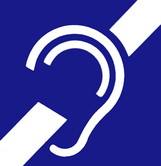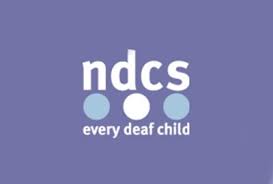Hearing loss that occurs when sounds are unable to pass into the inner ear, usually due to a blockage, (known as conductive hearing loss) is often temporary and treatable.
For example wax can be removed by drops, a syringe or suction. Hearing loss caused by a bacterial infection can be treated with antibiotics and surgery can be used to drain fluid that builds up in the ear or repair perforated eardrums or correct problems with the hearing bones. However, hearing loss caused by damage to the inner ear or the nerves that transmit sound to brain (known as sensorineural hearing loss) is permanent. This is because once the sensitive hair cells in the cochlea (the coiled, spiral tube inside the inner ear) are damaged, they cannot be repaired and remain damaged for the rest of a person’s life.
If your hearing is impaired, treatment can improve your hearing and quality of life.
Hearing aids
If you have hearing problems, you may be able to wear a hearing aid. About 1.4 million people regularly use hearing aids in the UK, and many more would benefit from them. A hearing aid is an electronic device that consists of a microphone, an amplifier, a loudspeaker and a battery. It increases the volume of sound entering your ear so that you may be able to hear things more clearly. The microphone picks up sound which is made louder by the amplifier. Hearing aids are fitted with devices that can distinguish between background noise, such as traffic, and foreground noise, such as conversation. Modern hearing aids are very small and discreet and can often be worn inside your ear.
Hearing aids are not suitable for everyone. For example, they may not be effective if you have profound hearing impairment. Your GP or audiologist (hearing specialist) will be able to advise you about whether a hearing aid is suitable for you. If a hearing aid is recommended for you, an audiologist will take an impression of your ear so that the hearing aid will fit you perfectly. The hearing aid will be adjusted to suit your level of hearing impairment. You will also be shown how to use and care for it. After your hearing aid has been fitted, you will have a follow-up appointment three months later.
If you experience problems using a hearing aid - such as distortion and repeated infections - that cannot be corrected by an audiologist, you may benefit from different treatments. An ear, nose and throat (ENT) surgeon will be able to discuss these with you. An ENT surgeon with a special interest in ear surgery is called an otologist.
Lip reading and sign language
Sometimes hearing loss can affect your speech as well as your ability to understand other people. Many people with significant hearing loss learn to communicate in other ways instead of, or as well as, spoken English. For people who experience hearing loss after they have learnt to talk, lip-reading can be a very useful skill. Lip-reading is where you watch a person’s mouth movements while they are speaking in order to understand what they are saying.
For people who are born with a hearing impairment, lip-reading is much more difficult. Those who are born with a hearing impairment often learn sign language, such as British Sign Language (BSL), which is a form of communication that uses hand movements and facial expressions to convey meaning. BSL is completely different from spoken English and has its own grammar and syntax (word order). Other types of sign language include Signed English and Paget Gorman Signed Speech.
For example wax can be removed by drops, a syringe or suction. Hearing loss caused by a bacterial infection can be treated with antibiotics and surgery can be used to drain fluid that builds up in the ear or repair perforated eardrums or correct problems with the hearing bones. However, hearing loss caused by damage to the inner ear or the nerves that transmit sound to brain (known as sensorineural hearing loss) is permanent. This is because once the sensitive hair cells in the cochlea (the coiled, spiral tube inside the inner ear) are damaged, they cannot be repaired and remain damaged for the rest of a person’s life.
If your hearing is impaired, treatment can improve your hearing and quality of life.
Hearing aids
If you have hearing problems, you may be able to wear a hearing aid. About 1.4 million people regularly use hearing aids in the UK, and many more would benefit from them. A hearing aid is an electronic device that consists of a microphone, an amplifier, a loudspeaker and a battery. It increases the volume of sound entering your ear so that you may be able to hear things more clearly. The microphone picks up sound which is made louder by the amplifier. Hearing aids are fitted with devices that can distinguish between background noise, such as traffic, and foreground noise, such as conversation. Modern hearing aids are very small and discreet and can often be worn inside your ear.
Hearing aids are not suitable for everyone. For example, they may not be effective if you have profound hearing impairment. Your GP or audiologist (hearing specialist) will be able to advise you about whether a hearing aid is suitable for you. If a hearing aid is recommended for you, an audiologist will take an impression of your ear so that the hearing aid will fit you perfectly. The hearing aid will be adjusted to suit your level of hearing impairment. You will also be shown how to use and care for it. After your hearing aid has been fitted, you will have a follow-up appointment three months later.
If you experience problems using a hearing aid - such as distortion and repeated infections - that cannot be corrected by an audiologist, you may benefit from different treatments. An ear, nose and throat (ENT) surgeon will be able to discuss these with you. An ENT surgeon with a special interest in ear surgery is called an otologist.
Lip reading and sign language
Sometimes hearing loss can affect your speech as well as your ability to understand other people. Many people with significant hearing loss learn to communicate in other ways instead of, or as well as, spoken English. For people who experience hearing loss after they have learnt to talk, lip-reading can be a very useful skill. Lip-reading is where you watch a person’s mouth movements while they are speaking in order to understand what they are saying.
For people who are born with a hearing impairment, lip-reading is much more difficult. Those who are born with a hearing impairment often learn sign language, such as British Sign Language (BSL), which is a form of communication that uses hand movements and facial expressions to convey meaning. BSL is completely different from spoken English and has its own grammar and syntax (word order). Other types of sign language include Signed English and Paget Gorman Signed Speech.
LOCAL SUPPORT
TBC
TBC
NATIONAL SUPPORT
National Deaf Children's Society
Our mission is to remove the barriers to the achievement of deaf children throughout the world.
Change-focused
Everything we do is targeted to bring us closer to our mission of a world without barriers for every deaf child. Whether challenging key decision makers or working collaboratively with other organisations, we will adopt whatever approach is required to achieve our mission.
Accountable
As a membership organisation, we are accountable for everything we do, both to our members and to the deaf children and young people we are here to serve.
Empowering
We believe that with the right support, deaf children can do anything other children can do. We empower deaf children, young people and their families to make informed choices and influence decisions affecting them. This approach is carried through into everything we do.
Inclusive
We aim to support all deaf children and young people, but put particular focus on those who most need our support. This includes deaf children from families in poverty, those with additional complex needs and those from a black and minority ethnic.
Website: www.ndcs.org.uk
The Action on Hearing Loss website has more information on British Sign Language (BSL) and lip-reading.
National Deaf Children's Society
Our mission is to remove the barriers to the achievement of deaf children throughout the world.
Change-focused
Everything we do is targeted to bring us closer to our mission of a world without barriers for every deaf child. Whether challenging key decision makers or working collaboratively with other organisations, we will adopt whatever approach is required to achieve our mission.
Accountable
As a membership organisation, we are accountable for everything we do, both to our members and to the deaf children and young people we are here to serve.
Empowering
We believe that with the right support, deaf children can do anything other children can do. We empower deaf children, young people and their families to make informed choices and influence decisions affecting them. This approach is carried through into everything we do.
Inclusive
We aim to support all deaf children and young people, but put particular focus on those who most need our support. This includes deaf children from families in poverty, those with additional complex needs and those from a black and minority ethnic.
Website: www.ndcs.org.uk
The Action on Hearing Loss website has more information on British Sign Language (BSL) and lip-reading.
SOURCE: NHS CHOICES 2014



